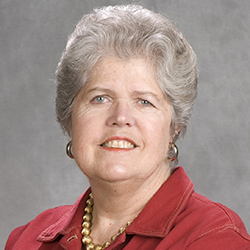
BY EMILY GILL
BY EMILY GILL
By the time this column appears, the Supreme Court will have ruled in Fulton v. City of Philadelphia, deciding whether the city may exclude a Catholic Social Services foster care agency from its foster care system because it will not work with same-sex couples. In most states, adoption agencies must be licensed, which means that they are essentially deputized by the government to supply services that otherwise under modern expectations the government itself would have to provide. Because most adoption agencies receive public funds, it is legitimate for public nondiscrimination policies to apply. Some states have passed exemptions permitting religious adoption agencies to reject same-sex couples, but only if they do not receive public funding. Fulton may allow adoption agencies that do receive these funds to discriminate against same-sex couples.
Two issues emerge here. First is the persistence in our society of a traditional understanding of appropriate gender roles, a theme that also ran through opposition to marriage equality before Obergefell v. Hodges (2015). A major factor in the stigmatization of gays and lesbians was their supposed deviation from the roles traditionally deemed appropriate for individuals of their sex. This underlay state anti-sodomy laws, seldom enforced but always carrying the threat of a criminal record, before they were found unconstitutional. Gay men were described as “effeminate”; lesbians were stereotyped as “butch.” Men sometimes expressed astonishment at learning that an attractive woman was a lesbian, the implication being that she was certainly attractive enough to appeal to men and should not have to resort to women.
When marriage equality became an issue, some argued that marriage should be restricted to traditional couples because the presence of both male and female parents is essential to providing an optimal environment for children. The presence of both male and female adults in children’s lives is healthy, but these need not necessarily be their parents. Even if mixed-sex couples were optimal, the traditional family model has been accompanied by documented instances of neglect, abuse, and violence, qualities that are not optimal for rearing children. Among the petitioners in Obergefell were two women rearing three children, one they had first fostered, one born prematurely and abandoned, and one with special needs. They needed to marry if their state of Michigan were to allow both women to be the legal parents of all three children. Some suggest that the pertinent question should not be the suitability of same-sex couples as parents, but rather the assumption that the dominant family model is the ideal environment for children.
Second, religious adoption agencies have not been permitted to exclude other types of couples—remarried or interfaith, for example—on religious grounds. Why should they be able to exclude same-sex couples even if they do not receive public funds? In 2019, a federally funded South Carolina foster-family provider, Miracle Hill, received a Trump administration waiver, later made national policy, from the Obama administration policy that federally funded agencies must accept all families. Miracle Hill families, however, must sign a statement affirming that marriage is between a man and a woman and refuting altogether the existence of transgender people. Aspiring foster mother Aimee Maddonna was rejected because she is Catholic and therefore of the “wrong” religion; the agency told her that it works only with evangelical Christians. If the trend represented by Fulton is extended, fewer worthy families will receive children, and more children will languish in institutional care.
Emily Gill is Caterpillar Professor of Political Science Emerita, Bradley University.
